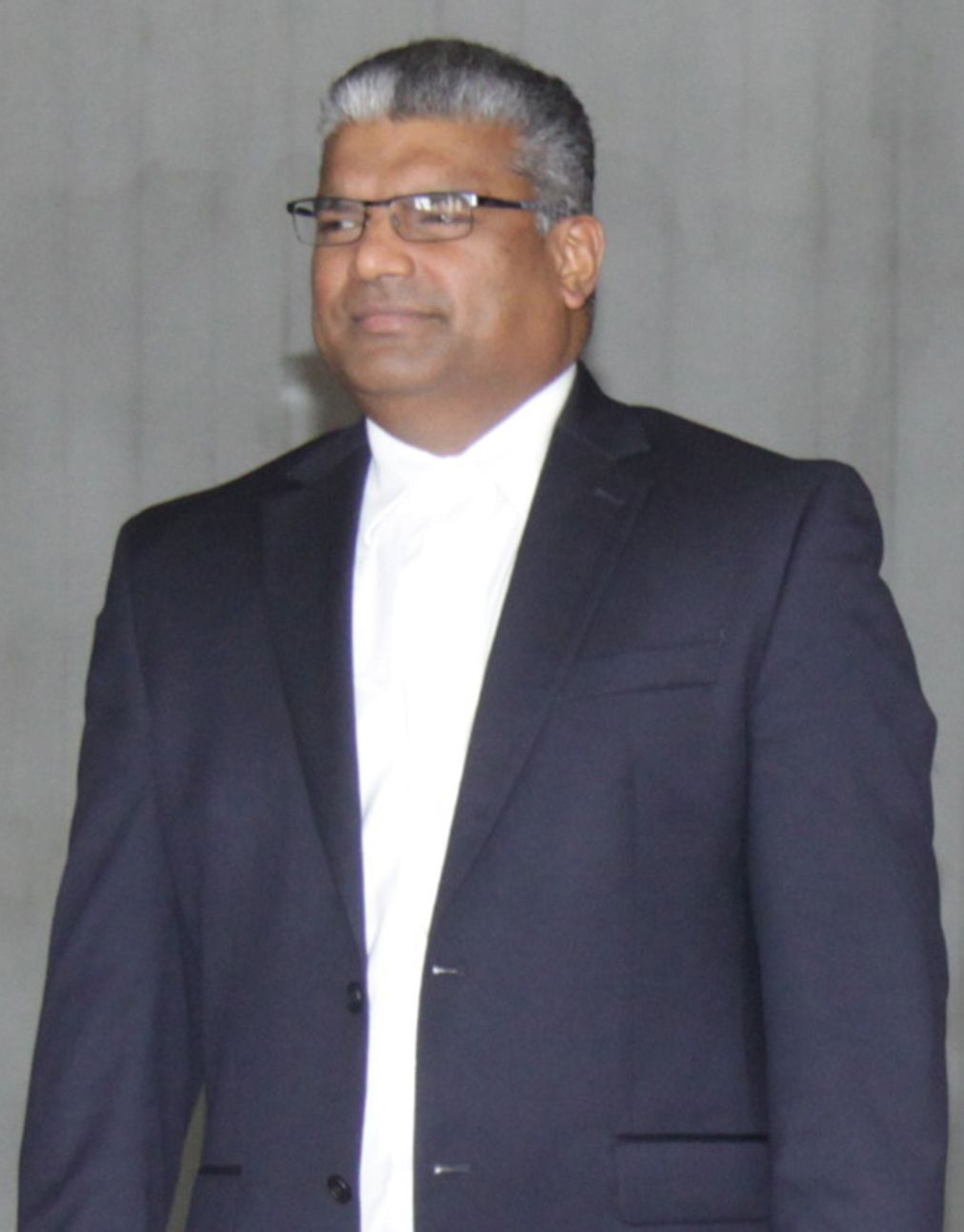(Trinidad Guardian) Former attorney general Anand Ramlogan, SC, is challenging the decision of a judge to grant police officers warrants to wiretap his phones as part of their investigation into witness tampering allegations against him.
Ramlogan’s constitutional lawsuit, which has effectively put the start of the preliminary inquiry into criminal charges arising out of the investigation on hold, came up for hearing before Justice Nadia Kangaloo yesterday.
Ramlogan is accused of obstructing justice by using threats and bribery to persuade Police Complaints Authority (PCA) Director David West to not give evidence in his (Ramlogan) defamation case against then-opposition leader and current Prime Minister Dr Keith Rowley.
He is also accused of misbehaving in public office by improperly endeavouring for West not to testify on Rowley’s behalf.
The offences allegedly occurred in October 2014, while former police commissioner Gary Griffith, who is also a witness in the case, was serving as national security minister. Shortly after former acting police commissioner Stephen Williams initiated an investigation into the allegations in February 2015, then-prime minister, Kamla Persad-Bissessar, advised the President to revoke Ramlogan and Griffith’s appointments. Ramlogan was eventually charged with the offences in 2017.
According to his court filings, obtained by Guardian Media, Ramlogan is claiming his constitutional rights to equality before the law and respect for private and family life were infringed when police officers investigating him obtained a series of warrants to wiretap his phones.
His lawyers are contending that the wrong procedure for obtaining the warrants under the Interception of Communications Act (IOCA) and the Indictable Offences (Preliminary Enquiry) Act (IOPEA) was used.
“The essence of these complaints is that the State misapplied primary legislation, namely the IOCA to secure access to private telecommunications data belonging to the accused and that upon being pointed out, wrongfully and in bad faith misused the warrant process under Section 5 of the IOPEA,” his lawyers said.
They are also contending that former High Court Judge and current Appellate Judge Gillian Lucky could have been perceived to be biased in granting five of the warrants.
They claimed that in the past, Ramlogan and Justice Lucky had a public disagreement while they were serving as attorney general and Police Complaints Authority (PCA) Director respectively. They contended that Ramlogan had criticised Justice Lucky for allegedly leaking a confidential PCA report on moves to revamp the “Flying Squad” unit of the T&T Police Service to then-opposition senator Faris Al-Rawi.
“There was a heated and controversial war of words,” they said, as they suggested that Justice Lucky should have had the case reassigned to another judge.
They also claimed that Justice Lucky recommended West for the position before rejoining the Judiciary.
“It is further submitted that if apparent bias exists the proceedings and any orders made are a nullity. The orders must be quashed regardless of how correct they might have been,” they said.
During the hearing, Justice Kangaloo questioned whether Chief Magistrate Maria Busby-Earle-Caddle granted a stay of the inquiry when she granted a request to refer the case to the High Court last week.
Justice Kangaloo pointed out that while Ramlogan’s legal team claimed that Busby-Earle-Caddle agreed to stay the inquiry pending the outcome of the constitutional case, such was not reflected in official correspondence sent to her.
British Queen’s Counsel Edward Jenkins, who is leading the legal team for the State, claimed he felt that case management of the inquiry could continue while the case is ongoing before Justice Kangaloo, as it (the case) cannot derail Ramlogan’s continued prosecution.
“Even if the application is successful that would not be the end of the prosecution’s case,” Jenkins said.
Justice Kangaloo advised the parties to clarify the issue of the stay by considering a transcript of the hearing before Busby-Earle-Caddle and she set deadlines for Ramlogan’s legal team to file documents in the case.
The case is expected to come up for hearing on November 4.
Jenkins was initially seeking a shorter adjournment, but Ramlogan’s lawyer Kent Samlal indicated that time was needed for the British Queen’s Counsel hired by Ramlogan to pursue the case, to be admitted to practice locally.
Ramlogan and former opposition senator Gerald Ramdeen face separate charges over an alleged legal fee kickback scheme.
Those charges against Ramlogan and Ramdeen arose out of an investigation into almost $1 billion in legal fees paid to private legal practitioners, who represented the State and State companies in legal proceedings during Ramlogan’s tenure between 2010 and 2015. The lawsuits dealt with corruption that allegedly occurred under former prime minister Patrick Manning.
Ramlogan, Ramdeen and Jamaica-born British Queen’s Counsel Vincent Nelson were charged with conspiring together to receive, conceal and transfer criminal property, namely the rewards given to Ramlogan by Nelson for being appointed to represent the State in several cases; of conspiring together to corruptly give Ramlogan a percentage of the funds and of conspiring with to make Ramlogan misbehave in public office by receiving the funds.
Shortly after being charged, Nelson entered into a plea agreement with the DPP’s Office in exchange for his testimony against Ramlogan and Ramdeen.
In March 2020, High Court Judge Malcolm Holdip upheld the plea agreement and issued a total of $2.25 million in fines to Nelson for his role in the alleged conspiracy.
The preliminary inquiry into those charges is also yet to commence before Busby-Earle-Caddle.






